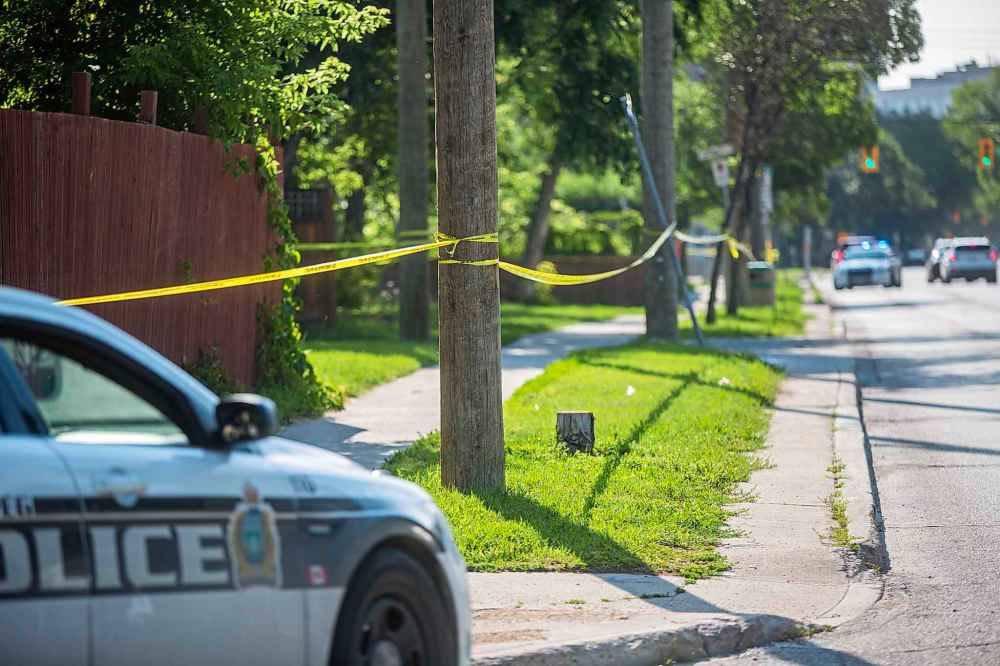Police, city hall on collision course over pension issues
Read this article for free:
or
Already have an account? Log in here »
To continue reading, please subscribe:
Monthly Digital Subscription
$19 $0 for the first 4 weeks*
- Enjoy unlimited reading on winnipegfreepress.com
- Read the E-Edition, our digital replica newspaper
- Access News Break, our award-winning app
- Play interactive puzzles
*No charge for 4 weeks then billed as $19 every four weeks (new subscribers and qualified returning subscribers only). Cancel anytime.
Read unlimited articles for free today:
or
Already have an account? Log in here »
Hey there, time traveller!
This article was published 12/08/2019 (1712 days ago), so information in it may no longer be current.
Winnipeg city hall is setting up a showdown with the powerful police union over the controversial issue of including overtime in pensionable earnings.
City councillors were informed Aug. 9 in an email from interim chief administrative officer Mike Ruta of the administration’s plan to unilaterally alter terms and conditions of the Winnipeg Police Pension Plan. It would include removing overtime from pensionable earnings, equal sharing of pension plan costs, and adjustments to early retirement provisions.
Ruta told members of council the administration has been meeting with the Winnipeg Police Association for the past three years in an attempt to change the plan, without success.

It will be city hall’s second recent significant fight with a civic union, with the likelihood of a strike or lockout of Winnipeg Transit workers increasing daily.
In the email — a copy of which was obtained by the Free Press — Ruta said he was formally notifying the police unions he’ll be bringing a report for council’s consideration in the fall. If approved, it would go into effect Jan. 1, 2020.
“I am sending a letter to the WPA and WPSOA (Winnipeg Police Senior Officers’ Association) advising them that we will be proceeding with submission of a report for council consideration proposing suggested changes to the City bylaw governing the plan,” Ruta wrote.
Mayor Brian Bowman made the police pension plan an issue in the October 2018 election, when he said he was committed to removing overtime from pensionable earnings.
Their own plan
While the pension contributions of other City of Winnipeg employees are combined in a general fund, the sworn officers of the Winnipeg Police Service have their own plan.
Historically, the police plan has been funded on a 50-50 basis, with officers contributing eight per cent of their earnings and city hall matching that amount. However, problems arose following the recession of 2008, when asset values of most pension plans plummeted.
While the pension contributions of other City of Winnipeg employees are combined in a general fund, the sworn officers of the Winnipeg Police Service have their own plan.
Historically, the police plan has been funded on a 50-50 basis, with officers contributing eight per cent of their earnings and city hall matching that amount. However, problems arose following the recession of 2008, when asset values of most pension plans plummeted.
Many recovered in the following years, but not the Winnipeg Police Pension Plan. By 2011, it had a solvency deficiency of $120 million.
Solvency deficiency is an actuarial phrase that reflects the projected situation where the sponsor of a pension plan ceases operation and an accounting of the plan assets shows there isn’t enough funds to pay the benefits entitled to all members.
That would never happen for the police plan because legislation prevents city hall from ceasing to exist or going into bankruptcy.
However, pension legislation applies the same level of obligations onto governments as to private corporations.
In this case, the solvency deficiency of the police pension plan required the city to make additional $26-million payments annually over the next five years. Legislation allows plan sponsors to postpone the special payments if the members agree; other civic employees agreed to the payment postponement, but in 2013, WPS members said no.
Rather than make the annual payments, city officials opted for a series of letters of credit to cover the interest payments required.
A civic spokesman said the police pension plan is now considered to have a funding surplus, as a result of “an increase in the contribution stabilization reserve and by increasing the rate of cost-of-living adjustments to pensions.”
The plan’s solvency will be assessed again as of Dec. 31, 2020.
— Aldo Santin
Ruta told councillors such a move would result in an annual savings of $1.5 million, which he said would be directed to “police operations.”
The police pension plan has been a concern for several years. The plan was not considered solvent (capable of paying all benefits in the unlikely event the city were to cease to exist) for a few years following the 2008 recession. The city made extra annual payments, and it’s now considered to be operating with a surplus.
The administration’s proposal is likely to be challenged by the police unions, as well as some members of council.
“Acting unilaterally is not something I’m prepared to support; I don’t think the city has the right to do that. This should be left to the collective bargaining process,” Coun. Brian Mayes said, adding changes the administration propose extend beyond the overtime issue.

Coun. Kevin Klein, chairman of the Winnipeg Police Board, said challenging OT would be a “popular political move,” but questioned the timing.
“How much do you think this (fight) is going to cost us?” Klein said, adding council recently approved an additional $1 million to the legal department budget to deal with other challenges.
WPA president Maurice Sabourin confirmed receipt of the letter from Ruta.
Sabourin said the association has obtained legal advice which supports its contention city hall cannot unilaterally alter the terms and conditions of the pension plan, as they are part of the collective agreement and can only be changed through negotiations.
He said the issue will be discussed at a series of WPA member meetings Thursday.
When the pension issue was raised in 2016, WPA vice-president George Van Mackelberg said the city had agreed to be solely responsible for plan solvency, after it was disclosed the city had improperly used the plan surplus to cover its own contribution costs.
Councillors were told in 2016 the financial problems of the police pension plan would require city hall to make annual contributions of $29.1 million, compared to $13 million in combined contributions from WPS employees.
Rebalancing the plan costs could potentially see the city’s share be reduced by $8 million, with a matching increase to WPS employees.
It was unclear from Ruta’s email what changes the administration wants to make to the plan’s early retirement provisions or how it expects to balance the plan costs with the unions.
aldo.santin@freepress.mb.ca











